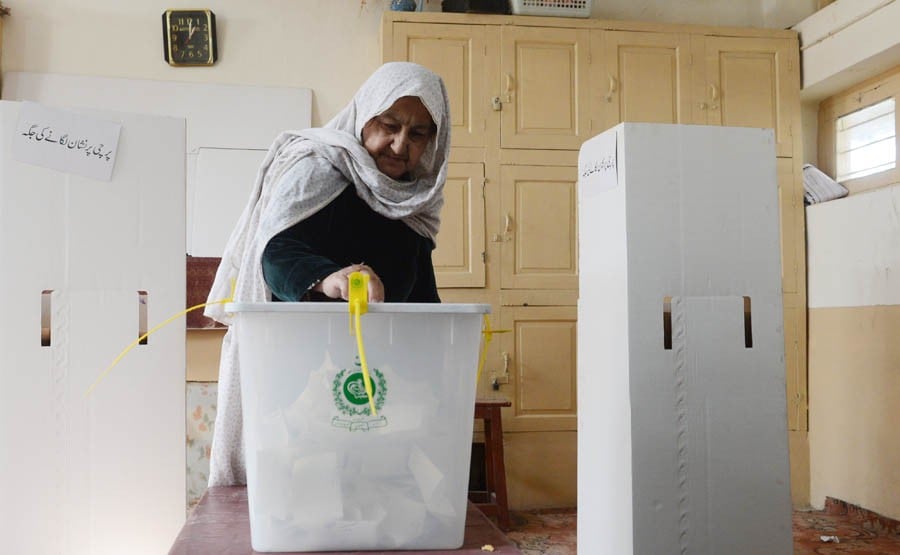
The result of NA 260 can be used to gauge the electoral situation in the entire province

NA-260 was declared vacant after the death of Abdul Rahim Mandokhail of Pakhtunkhwa Milli Awami Party (PKMAP) who had won this seat in 2013 elections. This time the real electoral battle was between Jamiat Ulema-e-Islam-Fazal (JUI-F), Balochistan National Party (BNP) and PKMAP. The JUI-F managed to secure the seat by bagging over 44,000 votes, leading the runner-up BNP by over 7,000 votes.
The result of this election reflects the electoral mood of the province and provides a glimpse into what might happen in the general elections next year. It can be argued how one seat can be used to gauge the electoral situation in the entire province. The answer lies in the mammoth size and ethnic diversity of this constituency.
NA-260 is spread over three districts of Balochistan; namely Quetta, Nushki and Chagai. Starting from Kuchlak in the North of Quetta to Taftan town near Iranian border, this constituency stretches over 700km in length. Covering an area of over 50,000sq/km, this is the largest constituency in Pakistan area-wise -- home to 72 different tribes and people from Baloch, Pashtun and Hazara ethnicities. This makes it a mini-Balochistan and therefore can be used to check the electoral pulse of the province.
Moving to the election results, all the three ruling parties in Balochistan fared badly in the election. The National Party (NP) did not even field a candidate, instead it supported the candidate of the JUI-F. The PML-N was nowhere to be seen in this battle and there was also no official announcement of supporting any other party. The PKMAP that had won this seat in last elections, ended at third position and over 10,000 votes as compared to last elections. In short, it was a rough day for the ruling party as despite having all the government resources, they failed to put up an impressive show.
Moreover, two opposition parties were in a nail-biting situation in this constituency from the outset.The JUI-F and BNP, both in opposition in Balochistan Assembly, carried out a brisk campaign in the build up to the election. After a close battle, the JUI-F managed to win the election defeating the BNP by a narrow margin. As compared to last elections, the percentage of votes bagged by the JUI-F increased from 15 to 34 per cent and, in the case of BNP increased from 15 to 29 per cent. Technically, this was a battle between two opposition parties and they did really well in the polls proving their popularity and connect with the masses.
In the dark hours after the polling ended on July 15, this scribe witnessed the celebrations on Sariab Road in Quetta. This is the same Sariab Road which is always in news for target killings and bomb blasts. It was seeing any sort of collective celebrations for the first time.
The good thing about this election was that unlike previous elections there wasn’t any major complaint of rigging. Even in last general elections the elections on the same constituency were marred by allegation of rigging. This time around, the election process went smoothly. This can be gauged from the fact that Sardar Akhtar Mengal, President of BNP, personally congratulated the candidate of JUI-F. This sort of concessionary call is unprecedented in the electoral history of Balochistan.
A couple of days after the elections, the PPP claimed the elections were rigged and held a protest demonstration. The allegations were rejected by the Election Commission of Pakistan (ECP). "Elections were transparent and we made every possible effort to ensure fair and free polls in the province," says Naeem Jaffar, Election Commissioner of Balochistan. The claims of PPP also can’t be taken seriously because they had no chance to win the election to begin with. Secondly, even the runner-up in the elections was BNP.
The election result of NA-260 by-election implies that the situation is bleak for the ruling coalition of Balochistan in next general elections. On the other hand the opposition parties are in a good position to electorally dominate Balochistan in the next elections. This also implies that the ruling coalition, after their four years rule, has disappointed the people of the province and now it’s time for it to face the backlash.
Shahzada Zulfiqar, a senior analyst based in Quetta tells TNS that the JUI-F bagged this seat "due to religious card, strong party structure and by selecting an affluent candidate who knew how to muster support. He outclassed his opponents at grassroots politics," Zulfiqar believes that the BNP had security concerns about the election campaign, still they did very well given their electoral score in the election.
"This election had symbolic value and this can establish the winner as a major player in the next elections in this constituency," he concludes.